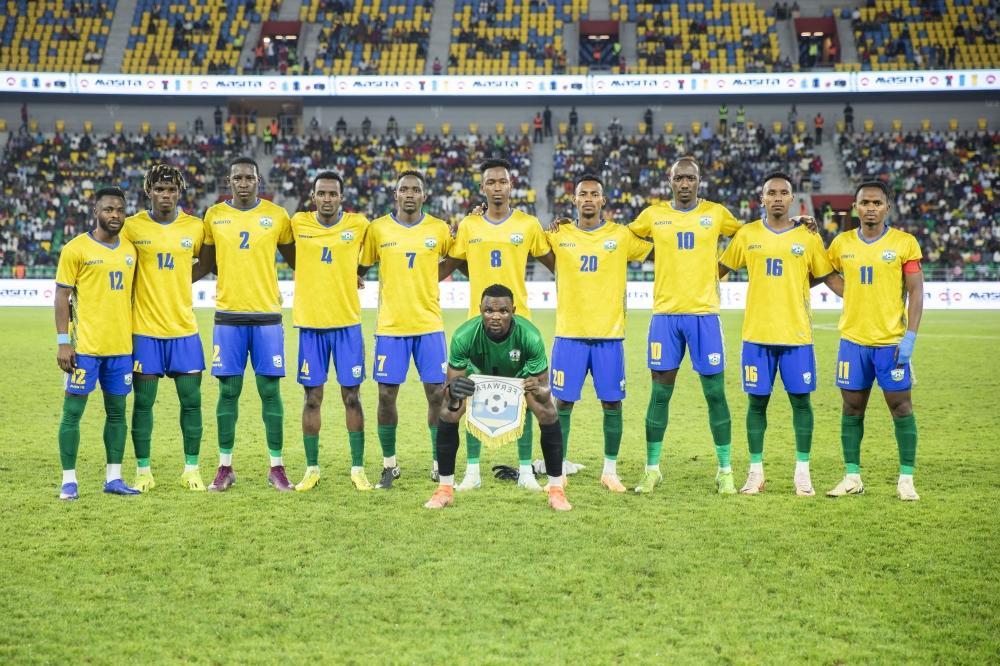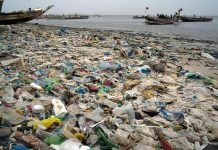Africa-Press – Rwanda. It’s barely 10 days to the start of the 2024 African Nations Championship (CHAN). The excitement is bubbling across East and Central Africa, especially in the host countries. It will take place from August 2-30.
Host cities in Uganda, Kenya, and Tanzania are buzzing with anticipation, welcoming 19 teams to the biennial tournament that showcases the best of local football on the continent.
Of the 19 teams vying for the title, East and Central Africa has seven representatives in the form of DR Congo, Sudan, Congo, Central Africa Republic, Tanzania, Uganda and Kenya.
The DR Congo and Morocco are the most successful teams in this tournament with two titles each, while Tunisia, Libya and current champions Senegal, folllow with one title each.
Nigeria, another finalist, are scheduled to play against APR FC in a friendly match at Amahoro Stadium, on July 29. The match is part of the Super Eagles’ preparations for the tournament.
But, amid the excitement, there’s a striking silence coming from Rwanda — a nation once proud host and quarterfinalist in 2016 — now reduced to spectators.
Seriously, qualifying (regularly) for CHAN, should be top target for Rwanda since AFCON has proved a steep too far and high, with just one appearance, and that came 21 odd years ago.
Rwanda’s failure to qualify for this year’s edition has dealt a significant blow, not only to the national team’s competitive progression but to the wider football fraternity in the country.
The disappointment is twofold: the missed opportunity for local players to gain international exposure, and the lost chance for Rwandan fans to revel in the experience of a continental football festival unfolding right at their doorstep.
A lost platform for local talent:
CHAN has, since its inception in 2009, been a fertile ground for unearthing future African stars.
Unlike the Africa Cup of Nations (AFCON), CHAN is exclusively reserved for players plying their trade in their domestic leagues.
This format has allowed lesser-known talents to shine and attract attention from international scouts and clubs.
For Rwanda, a nation investing heavily in making, and positioning itself as a preferred destination for sports tourism, missing out is more than just a sporting loss. It’s a setback in a critical stage of player development.
Players like Ernest Sugira, Emery Bayisenge and a few others once used this very platform to springboard into higher levels of competition. It helped them get a shot at/in the professional ranks.
Yes, none has gone on to become a world beater or anything close to it — far from it —yet, a couple of Rwandan players, who were part of the CHAN 2016 squad have enjoyed stints with clubs in Europe and north Africa, with varying success.
The next generation of locally based stars will not have the same opportunity. Players being exposed to higher levels of competition is critical to their personal, professional and career development.
And, while Rwanda continues to produce technically gifted players, many lack the kind of high-pressure, international match experience that events like CHAN provide. Making it the more imperative to qualify more often than not.
The implications may be felt for years, especially when these players are expected to transition into the (senior) national team for AFCON or World Cup qualifiers.
Which is why the next Ferwafa president and his administration must be people who are prepared to roll sleeves and get their hands dirty from day one, for the job at hand is so enormous.
After years of stagnation and in some areas, regression, Rwandan football is crying out for a new lease of life. I understand it will take some heavy lifting to get work done, but what’s the alternative? Or the outcome of doing nothing?
Amavubi needs to be a fixture at CHAN tournaments, at the bare minimum. Now fans have been denied their football festival. This CHAN edition, from my percepective, held promise beyond the pitch.
With group matches taking place in neighboring Uganda, Kenya, and Tanzania, hundreds of Rwandans would have made the short trip to support Amavubi had they qualified.
The atmosphere in 2016, when Rwanda hosted the tournament, was electric. Stadiums were packed, merchandise sold out, and the streets were adorned with flags and face paint.
“It feels like a celebration we’re not invited to,” says Eric Nshimiyimana, a long-time Amavubi supporter based in Kigali.
“We were planning to travel to Kampala or Nairobi or Dar es Salam for the group stage if we qualified. It was going to be a football road trip with friends. Now, we’ll just watch from TV — it’s not the same.” This sentiment is shared by many.
Local businesses — from travel operators to sports bars — also stand to miss out. Regional tournaments often trigger spikes in tourism, hospitality, and commerce.
For a country that has positioned itself as a rising sporting hub in Africa, being absent from a regional showpiece is a missed opportunity at every level you look at it.
The onus now falls on the Rwanda football governing body, FERWAFA, to reflect on what went wrong in the qualification process and, more importantly, what must be done to ensure Rwanda remains competitive on the continent.
Questions linger over talent scouting, investment in local coaching, and domestic league competitiveness. Yet, the answers are few.
All eyes will be on the new FERWAFA administration to see how and what they do different to get Rwandan football from one step to another—in the right direction. Elections are set for August 30.
The CHAN 2024 tournament should have been a springboard, both for players and fans especially considering Rwanda’s proximity and logistical ease of participation and support.
Instead, it serves as a stark reminder of the work still needed to ensure Rwanda’s football ambitions are realized.
As East Africa unites in celebration of the beautiful game, Rwandans will watch from a distance — with a mix of envy, regret, and a renewed hope that at the next edition, they will not just be observers but contenders.
For More News And Analysis About Rwanda Follow Africa-Press






